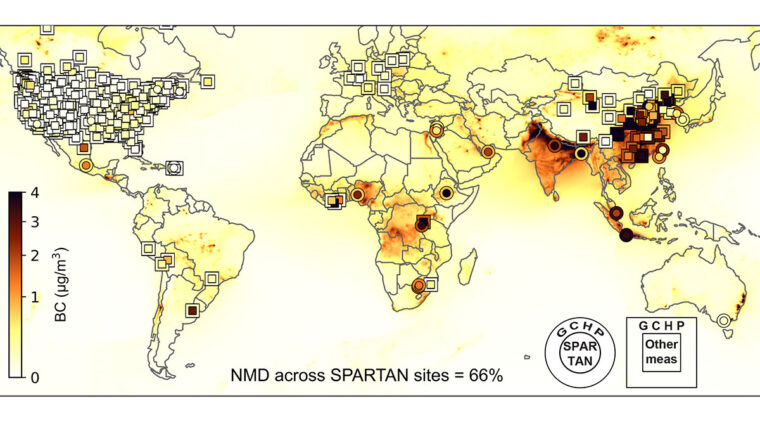
Black carbon, the sooty byproduct of incomplete combustion of fossil fuels, has emerged as a major contributor to climate change and human health impacts. Researchers in the McKelvey School of Engineering at Washington University in St. Louis have used a variety of models to take on the challenging task of measuring ambient concentrations of black carbon in the “global south” and found estimates of these harmful emissions have been grossly underestimated.
Yuxuan Ren, a doctoral student in the lab of Randall Martin, the Raymond R. Tucker Distinguished Professor at McKelvey Engineering, led a study characterizing black carbon based on measurements from the Surface Particulate Matter Network (SPARTAN), a global measurement network led by McKelvey Engineering. Ren focused on black carbon concentrations in the air in the “global south,” a loosely defined group of developing countries in Africa, Asia, Latin America and the Caribbean. The researchers found black carbon concentrations in low- and middle-income areas across the “global south” to be underestimated by about 38%.
The team conducted simulations with data from the Community Emissions Data System, the Emissions Database for Global Atmospheric Research and the Task Force on Hemispheric Transport of Air Pollution. Using the GEOS-Chem open-source community model of atmospheric composition, they were able to make better connections between global emissions and localized measurements. However, measuring black carbon is not as simple as it sounds because different parts of those areas burn different materials and fuels that contribute to black carbon, which makes equal comparisons difficult.